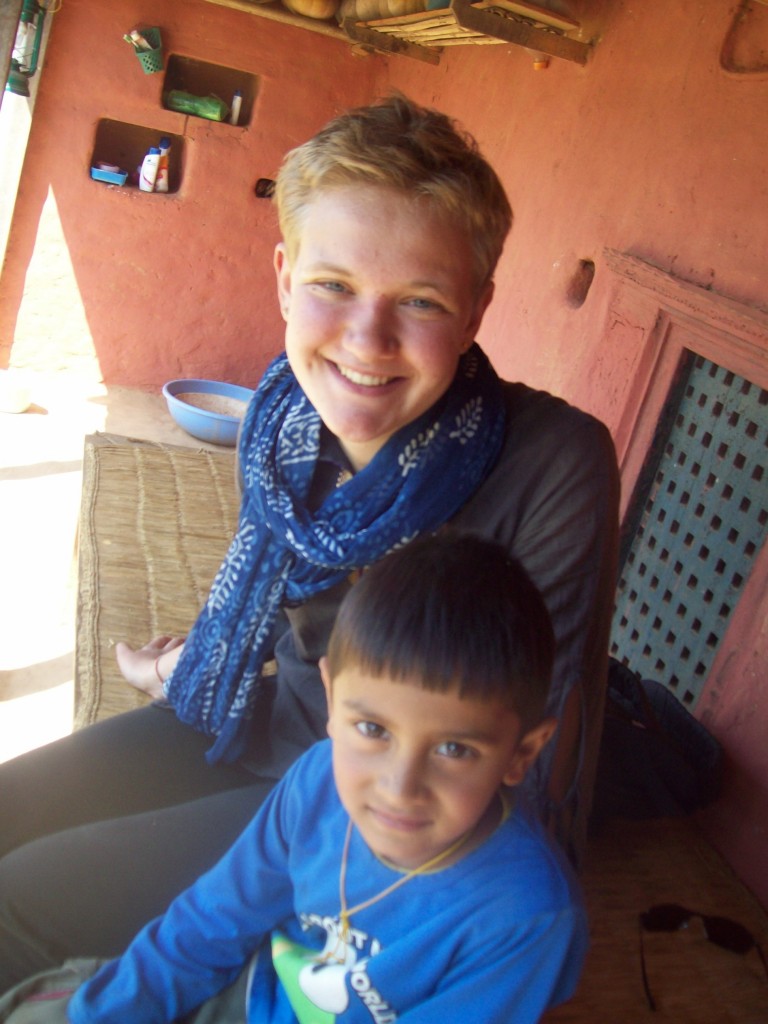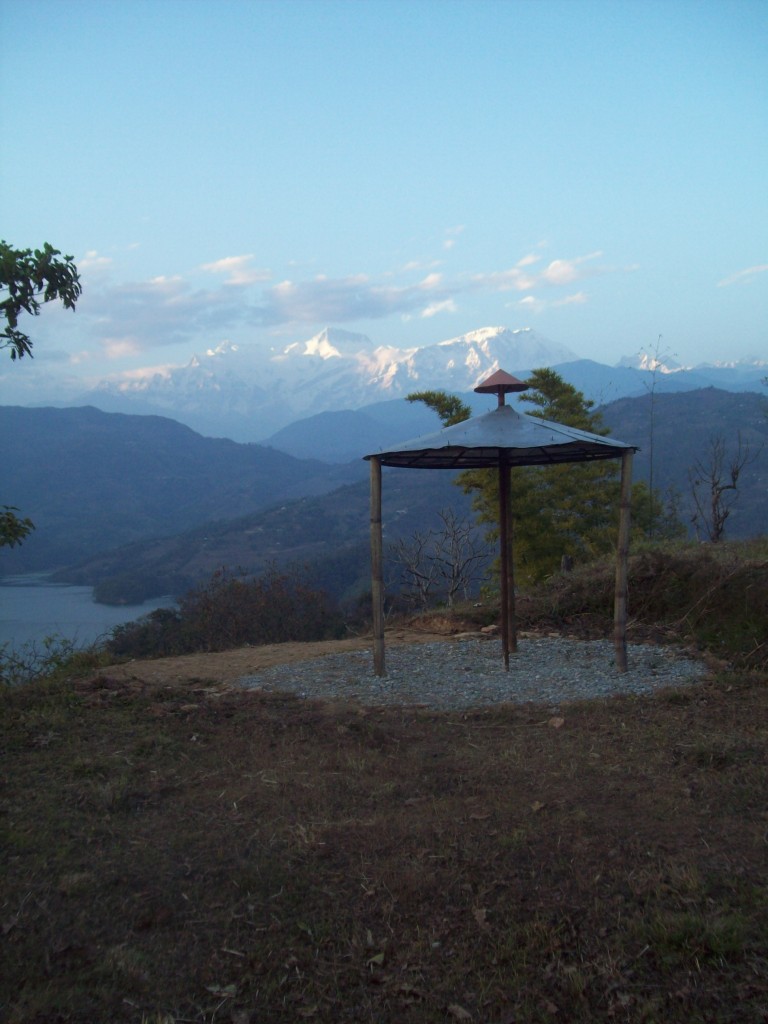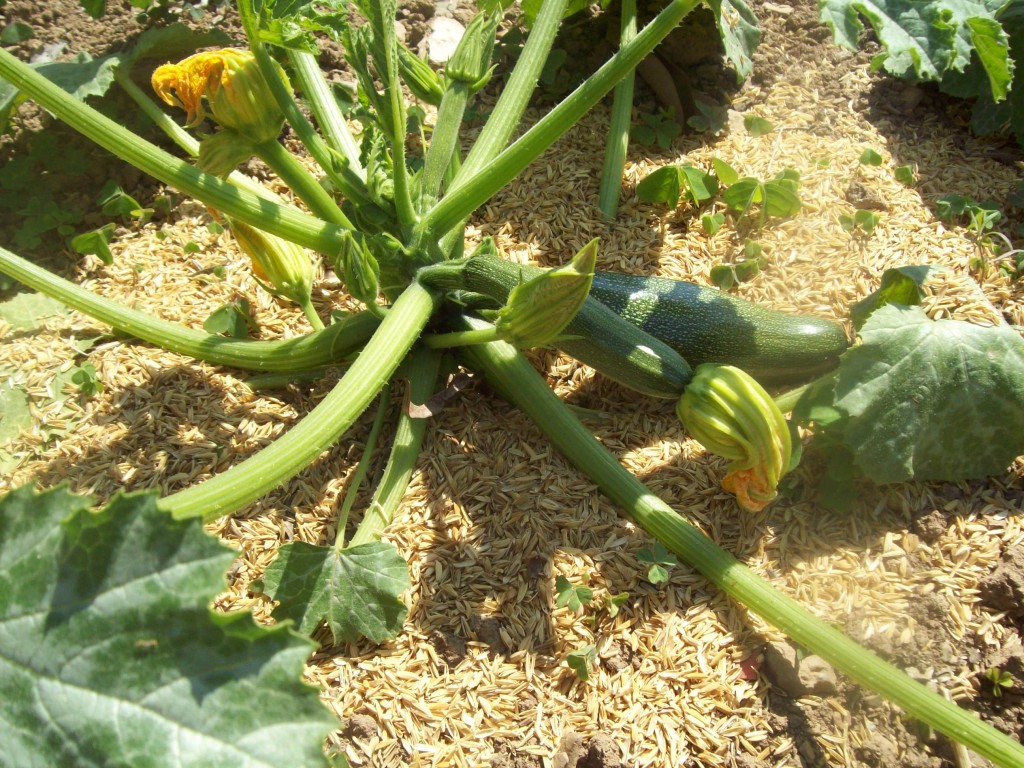This morning the mountains shine through a haze of mist. Later they may burn golden in the sun or vanish behind a veil of clouds, but for now they appear as a soft milky white strip against the pale blue sky. They are a study in gentle shadow and soft light, matched by their blurred reflection in the lake below. But that is just this morning, for everyday a different mountain range greats me, sometimes brilliant and sharp against a smooth sky, sometimes appearing like a dream or mirage fading into the clouds. Each morning I try to see the mountains anew, perhaps as the back of a curled beast, or as the summits that have called so many to climb, or as the spiritual resting place of some divine being. Yet no matter the day or the details of the mountains the Anapurna Mountain Range serves as the constant backdrop for life on Mountain View Eco Farm.
Life on the farm is simple. I live with Govinda, the founder of Mountain View Eco Farm, and his wife Chetina, who over the course of my first month have served as excellent hosts, cultural guides, farming gurus, and become great friends. Everyday on the farm holds the promise of excellent Nepalese food, as well as the occasional lesson in Chapati cooking or momo making, conversations and jokes with my hosts, and a view into a modern rural lifestyle. The mornings are peaceful, with lemon grass or basil tea and the small jobs of shelling peas, or chopping vegetables for breakfast, until at 9:30 I head down to the school where I’ve been volunteering.
I walk down with Govinda’s neighbor, Nomrata, who is also a school teacher, lapsing in and out of conversation about our classes, Nepalese and American culture, or simply enjoying the view of the rice fields being plowed and the children running to school ahead of us. The where we teach is for grades 1 to 4 and is one of the poorer schools in the area. I teach six classes in math and English to the various grades. volunteering at the school has proven a surprising pleasure, as with no real prior experience, I’ve somehow been able to jump confidently into the role of a teacher despite the fact that the students have very little English and I have only a handful of Nepali phrases. Yet the language barrier has in some contributed to the fun of teaching. I cannot just copy the work onto the black board and trust the students to understand, instead I must be constantly engaged, acting out words and sentences and making up quick games to reinforce vocabulary. Above all I must be patient, especially with class one where it’s often a challenge to get all the students to sit in their seats let alone pay attention to a lesson.
After school Nomrata has been giving me a slow tour of the surrounding countryside. We have visited the nearby Buddhist temple, gone to the home of one of the other school teachers for tea, walked to Begnas lake, and visited a forest well where many local families draw their water. I’ve also become close friends with Nomrata’s son, who has given me a lesson in Nepalese clapping games, and a good dose of six year old love.
In the Evenings I turn to farm work. Already Govinda has proven to be a wealth of knowledge on the traditions of Nepalese farming. So far I have helped harvest tomatoes and carrots, water the vegetable beds, propped up tomato plants, transplanted chiles, and of course weeded. Thereis something so enjoyable about watching the slow natural progression of the farm as vegetables ripen, flowers open, and new plants sprout.
Yet just as impressive as the natural processes on the farm are the constant projects Govinda has going. One day it is rebuilding the shower, the next it is flattening a field for bad-mitten, and the next it’s looking at a prospective cow to add to the farm. As I write this Govinda is in the process of installing solar power cells so the farm will no longer have scheduled blackouts every night. The list of Govinda’s projects goes on and on, but he never lets his big dreams interfere with the practicalities of progress, every day it seems something new has been added or some new step has been taken on the farm.
Even with the teaching and farming I’ve already found time to explore beyond Begnas Tal (the local town) and see more of beautiful Nepal. I’ve taken day trips to Pokhara, the second largest town in Nepal, to walk along the lake front and boat out to an island temple.
Govinda and I have also already gone on a week long trip to visit Lumbini (the Buddha’s birthplace), Bardia National Park, stay in rural Tharu homestays (where I also went on a jungle walk and stalked wild rhinos), as well as visiting Govinda and Chetina’s family. We are currently planning a trekking trip after the school lets out for exams.
It’s hard to believe that it’s almost been a month already. In someways it seems like I just arrived in Kathmandu yesterday. But at the same time I feel like I’m really settling into the community and Nepalese culture. I’ve joined a weekly bird watching club with Govinda, discovered a local organic coffee farm, and helped milk a neighbor’s water buffalo. Everyday has new adventures, projects, and challenges. In Nepal I have learned how much the world has to offer if you remain open. My one real regret is that I have not been able to make much headway thus far in learning Nepali. But even that is something within my power to change.
Namaste,
Dinah
Dinah



